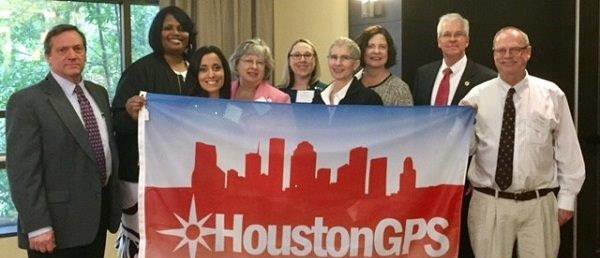College of the Mainland Joins Houston GPS

College of the Mainland is the latest institution to join the Houston Guided Pathways to Success (GPS) alliance, a regional collaboration that provides a timely, structured and seamless pathway for students transferring from Gulf Coast-Houston area community colleges to Houston area universities. The overarching goal is to increase college completion rates.
“College of the Mainland is excited to join other area schools to help provide our students who are continuing their education at a four-year institution with a seamless transition. Through Houston GPS, area schools are working together for the benefit of all students in the region,” said Dr. Warren Nichols, president of College of the Mainland.
Aside from COM, 10 other institutions encompassing more than 300,000 students make up the Houston GPS alliance: Houston Community College System, Lone Star College System, San Jacinto College District, Texas Southern University, University of Houston, University of Houston-Clear Lake, University of Houston-Downtown, University of Houston-Victoria, Victoria College and Wharton County Junior College.
Nichols and others from COM participated in a day-long Houston GPS Spring Convening on Monday, April 9 at the University of Houston main campus. Throughout the day, the partnering schools shared lessons learned on what their schools have accomplished regarding degree maps, co-requisite, technology, advising and marketable skills.
Aside from Nichols, those attending from COM were Dr. Carla Boone, Leanne Downton, Tamara Hoodye-Harris, Ron LeVick, Ruth Rendon, Dr. Steve Sewell, Dr. Vicki Stanfield, Michelle Valdes and Dr. Teri Walker.
“With the latest addition of College of the Mainland, we continue to expand the regional consortium of institutions that make up Houston GPS,” said Paula Myrick Short, University of Houston System senior vice chancellor for academic affairs and UH senior vice president for academic affairs and provost. “This latest addition expands our reach for Houston GPS to a radius of 50 miles, with the city of Houston at its center, and serves to increase the impact that Houston GPS will have on all the students served by our institutions in the region.”
Representatives from each participating institution are working collaboratively to fully implement Houston GPS strategies by fall 2018. Some strategic components include academic maps that provide students with a guideline to complete their major courses within four years, broad clusters of majors that help students choose an appropriate college path and career faster, and new math course requirements better aligned to intended majors. Students’ progress with their degree plan also will be closely monitored.
